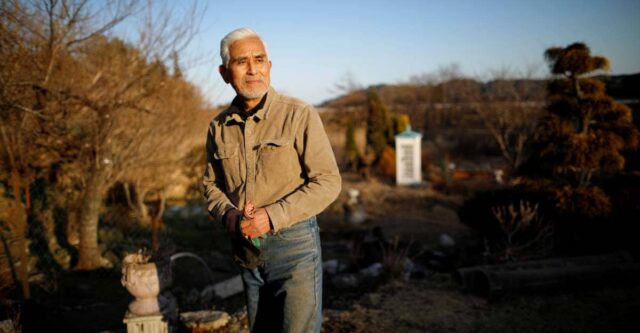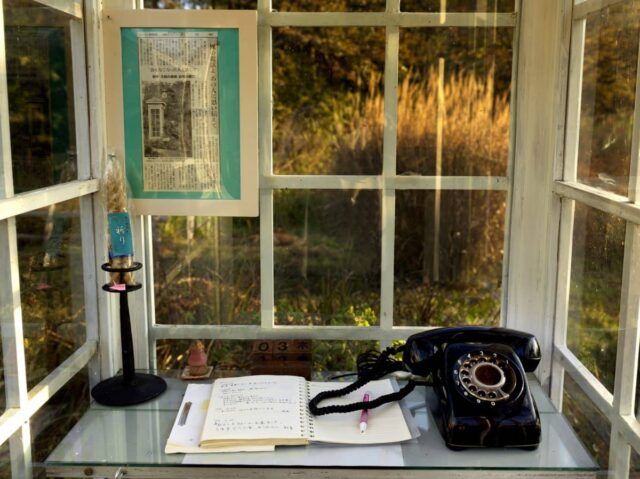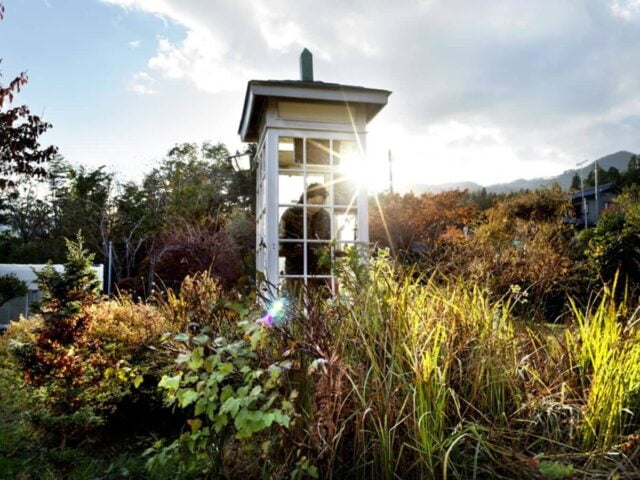When people realize that they are facing death, amazing things can happen. In March 2011, 30 feet tall giant waves hit the northeastern area of Japan. The tsunami and the 9.0 magnitude earthquake killed six times more people than the 9/11.
Of all the areas affected by the tsunami, Otsuchi has the highest number of missing people. Residents from the town of Otsuchi tried to find a way to stay connected with the ones they lost.
The Phone Of The Wind
The phone booth was built by Itaru Sasaki, who owns the garden in Otsuchi. He was already dealing with the grief of losing a loved one before the tsunami and was having a hard time talking about it. Itaru lost his cousin due to cancer.

In an interview, he says, “There are many people who were not able to say goodbye. Some families wish they could have said something at the end, had they known they would not get to speak again.”
Inside the booth, there is a black rotary phone connected to nowhere. It does not work at all. The phone booth sits on a windy hill overlooking the pacific ocean.

He named the booth the ‘Phone Of The Wind’ or the Wind Telephone because his thoughts can not reach his cousin through a regular phone line. He wanted the wind to carry his thoughts.
People started coming to his garden, and later when the word got out about the same, many started showing up daily. The idea of keeping a relationship with the dead is not a strange one in Japan. For them, the line between the world of the living and the dead is a thin one.
A lot of families in Japan keep a Buddhist altar for their dead relatives in the living room.

More men than women come to the booth, according to Itaru. When people go into the booth, they usually talk about what is happening in their lives.
Some dial the phone but say nothing. Some ask questions like how are you, are you warm, or say take care. It is like a way of saying that they love them.
Also Read: In Pics: Exquisite Paintings By Japanese Artist Who Visited India During The 1930s
In a video posted by Reuters earlier this year, a man named Kazuyoshi Sasaki went to the booth to call his late wife, Miwako.
“When I came back to the house and looked up at the sky, there were thousands of stars, it was like looking at a jewel box,” Sasaki says. “I cried and cried and knew then that so many people must have died.”
According to some news outlets, a few months ago, Itaru Sasaki was approached by organizers who want to set up similar phone booths in Britain and Poland. This would allow people to call relatives they had lost in the coronavirus pandemic.

Those who have lost their loved ones have these one-way conversations in their heads with them. These conversations are full of regrets, guilt, and sorrow. A phone booth like this is a great way to let them all out. Whenever any disaster happens, we learn how fragile life is.
Losing a loved one is a scar that stays with people forever. Some talk about it and others don’t. Real feelings are always conveyed through gestures, not by words.
Image Credits: Google Images
Sources: Reuters, Business Insider, This American Life
Find The Blogger: @PrernaMagan
This Post Is Tagged Under: Phone of the wind, Japan Otsuchi, Where is Otsuchi, Who is Itaru Sasaki, What is Phone of the wind, Lost loved ones, Coronavirus, Tsunami, Tsunami in Japan, Japan earthquake, earthquake, Why so many earthquakes come in Japan, 2011 tsunami, the tsunami in India, India, India Japan relations, loneliness minister, Japanese art, shin-hanga prints, what is shin-hanga art, who is Hiroshi Yoshida, artists, India during the 1930s, landscape paintings, woodblock printmaker, Japan, anime, animation, words, love, gestures, regrets, guilt, life, Britain, Poland, Rotary phone, Black Rotary phone, cancer, Buddhism, garden, cherry blossoms, spring, night sky
Other Recommendations:
These Japanese Nano Poems Will Make You Fall In Love With Them

































